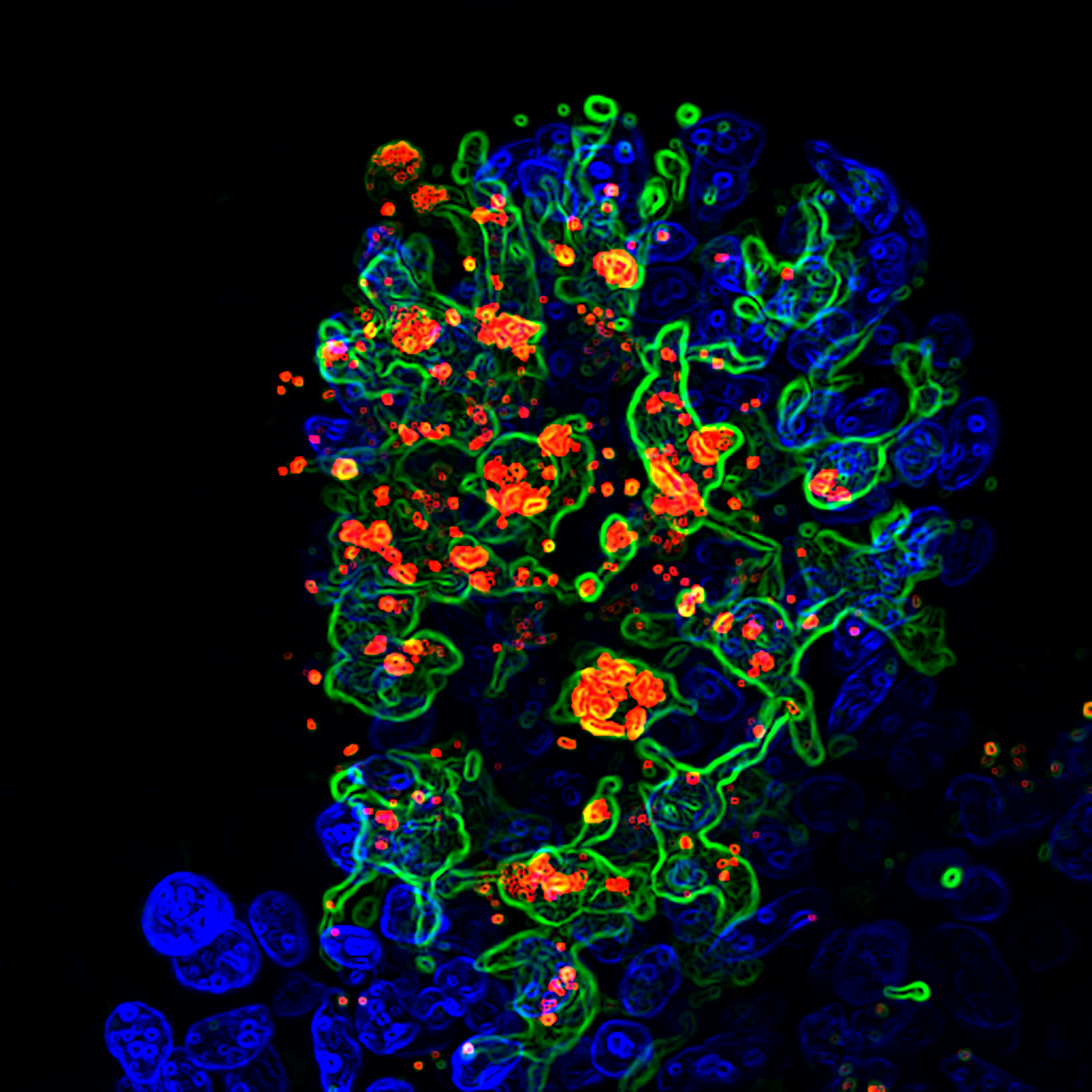
Photo above shows opportunistic fungus called candida albicans (red) engulfed by CX3CR1+ phagocytes (green) in the gut villi (blue). Photo credit: Dr. Iliyan Iliev and Dr. Irina Leonardi.
Immune cells that process food and bacterial antigens in the intestines control the intestinal population of fungi, according to a new study from Weill Cornell Medicine scientists. Defects in the fungus-fighting abilities of these cells may contribute to some cases of Crohn’s disease and other forms of inflammatory bowel disease (IBD).
The findings, published Jan. 11 in Science, illuminate a strong connection between fungi, immunity and intestinal inflammation and suggest a new, targeted treatment strategy for IBD.
“After discovering that fungi might be involved in the pathology of IBD, one of the big questions in the field has been how to identify patients who would benefit from antifungal co-therapy, and our finding suggests a way to do that,” said senior author Dr. Iliyan Iliev, an assistant professor of microbiology and immunology in medicine at Weill Cornell Medicine and a scientist at the Jill Roberts Institute for Research in Inflammatory Bowel Disease. To continue reading...

